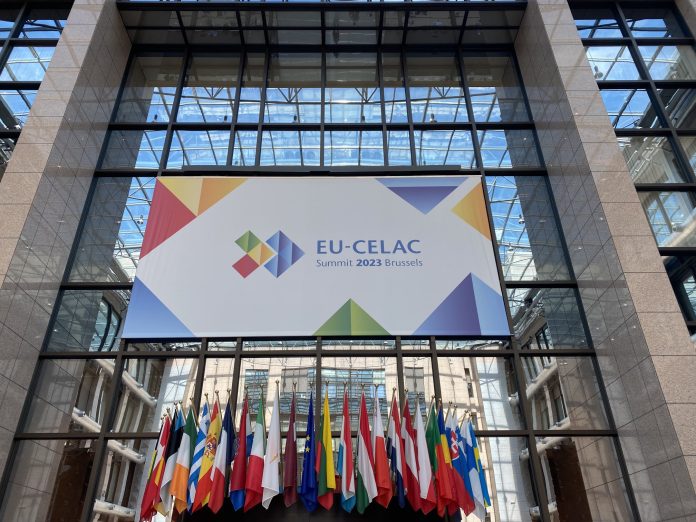The EU, Latin America and the Caribbean should revitalise rules-based multilateralism, in order to ensure peace, respect for human rights and international security.
President Roberta Metsola will attend the summit on behalf of the European Parliament, together with the Co-Chair of the Euro-Latin American Parliamentary Assembly (EuroLat) MEP Javi López (S&D, Spain).
President Metsola will meet with Brazil’s President Luiz Inácio Lula da Silva, Ecuador’s President Guillermo Lasso, and Uruguay’s President Luis Lacalle Pou.
Ahead of the gathering, President Metsola, underlined: “We are committed to boosting parliamentary democracy around the globe. Strengthening the partnership between Europe and Latin America and the Caribbean is critical for both regions. Today’s summit is a chance for us to boost our trade agreements, increase cooperation to meet our environmental targets and ensure respect for human rights is placed at the centre of our talks. Europe must keep engaging with regions across the world in a spirit of friendship and mutual respect. The European Parliament will play its part and I am pleased to announce that we will soon be opening our first antenna office in Latin America.”
“The EU and Latin America together make up one third of UN members, and share fundamental values such as parliamentary democracy and the defence of multilateralism. The antenna office will allow us to reinforce the six EP Delegations that currently work in the region and to continue supporting the work of the EUROLAT Assembly, which has been functioning for twenty years, with its 150 members holding two meetings per year,” said Javi López.
In a message to the leaders, MEP López and the Chair of the Latin American component of EuroLat, Colombian Congressman Óscar Darío Pérez, will convey the assembly’s priorities to boost the bi-regional strategic partnership, ahead of their own plenary gathering, on 24-27 July in Madrid.
Parliamentarians of both regions call for strict compliance with international law, state their solidarity with the Ukrainian people and condemn the “illegal, unprovoked and unjustified attack by the Russian Federation” in a joint statement. They also insist on the importance and value of regular EU-CELAC summits of heads of state or government –the last one took place in 2015- and underline that EuroLat kept meeting during these eight years to maintain dialogue between the parties at bi-regional level.
Trade to improve people’s lives
Trade relations between the EU and the LAC region should contribute to improving the well-being and quality of life of all citizens, they note. They also ask for a structural reform of the World Trade Organisation (WTO), to make it more effective and transparent, for an open, fair, equitable, inclusive and non-discriminatory world trade system that takes account more effectively of the difference in levels of development.
Debt restructuring
Parliamentarians worry about how recent inflation, food, health, migration and energy crises have exacerbated poverty, hampered long-term sustainable economic and social development, and created greater inequalities. To address this, they back the UN initiatives on debt restructuring. They suggest tying debt cancellation, exchange and restructuring strategies to investment in education, health, industrial recovery, social cohesion, environmental conservation and the strengthening of the business sector, among others.
Read the full statement.
EP Office in Latin America and the Caribbean
The Bureau of the European Parliament agreed earlier this month to establish a European Parliament office in LAC region. This decision is part of efforts to strengthen the parliamentary dimension in the EU’s external representations with a focus on multilateral parliamentary assemblies and international organisations. The offices are key to establishing networks, raising awareness about Parliament’s work and exchanging knowledge and best practices.

